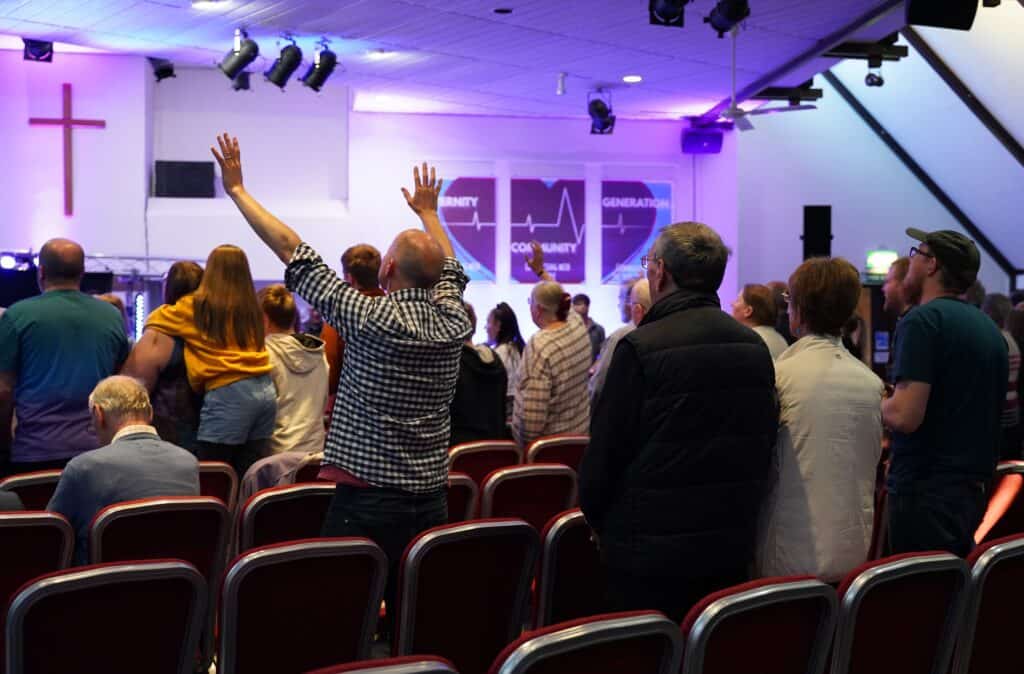Greeters and ushers play a crucial role in maintaining security at churches, ensuring the safety and well-being of the congregation. With the increasing need for security measures in public places, these individuals hold a significant responsibility in providing a safe environment for all church attendees. While they may not have an extensive background in emergency planning or security activities, their presence and attentiveness can make a significant difference in identifying potential concerns and mitigating risks.
Training in safety and security is essential for greeters and ushers, as they are often the first line of defense when issues arise within the church. They must be knowledgeable about potential threats, vigilant in monitoring the church premises, and prepared to act in case of emergencies. By educating these church volunteers on various security protocols and guidelines, they can better serve their congregation and act as key players in safeguarding their place of worship.
Furthermore, greeters and ushers contribute to creating a welcoming atmosphere while keeping security in mind. Balancing these responsibilities ensures that churchgoers feel at ease, knowing that their safety is taken seriously by those responsible for maintaining order and peace during services and gatherings.
Role of Greeters and Ushers
Welcoming Environment
Greeters and ushers play a crucial role in creating a welcoming environment for church attendees. They are typically positioned at entrances, ensuring that all visitors receive a warm and friendly welcome when they arrive. Greeters and ushers should be approachable, displaying a genuine interest in making attendees feel comfortable and at ease.
In addition to greeting guests, greeters and ushers may also offer assistance with finding seats, locating restrooms, and navigating the church facility. By providing helpful information and a positive demeanor, these individuals contribute significantly to the overall atmosphere of the church service.
Crowd Control
Another important responsibility of greeters and ushers is maintaining order and safety within the church. This can include monitoring the flow of traffic, ensuring that entrances and exits remain clear, and offering assistance in the event of any disturbances or emergencies.
In conclusion, the roles of greeters and ushers are essential for creating an inviting and safe environment within the church. These individuals contribute to both the welcoming atmosphere and the overall security of the congregation, making their presence invaluable during any church service.
Safety and Security Responsibilities
Greeters and ushers play an essential role in ensuring the safety and security of the congregation. They share the responsibility with ministers, teachers, and staff members. This section covers two main responsibilities: Monitoring Suspicious Behavior and Emergency Situations.
Monitoring Suspicious Behavior
Ushers and greeters are often the first point of contact for visitors. They should be attentive, observant, and able to identify any suspicious activities, behavior, or people. They need to maintain a sense of vigilance and:
- Greet and engage with visitors to assess their intentions
- Be cautious of people wearing bulky clothing or carrying large bags, which could conceal dangerous items
- Report any suspicious behavior to the church security team or authorities
Remember that ushers and greeters are not security or police officers but rather serve as a point of communication and observation. Their role is to ensure a welcoming and safe environment for everyone.
Emergency Situations
In case of an emergency situation, such as a fire, medical emergency, or active threat, ushers and greeters must be prepared to respond effectively. Some key responsibilities include:
- Familiarizing themselves with the church’s emergency plans and exits
- Assisting in evacuating the congregation in an orderly and timely manner
- Providing support to those in need, including people with disabilities and families with young children
- Communicating clearly and calmly with the congregation, guiding them toward safety
Ushers and greeters should participate in regular training sessions to effectively handle various emergency situations, maintaining a high level of preparedness. This, in turn, helps create a safer church environment for all.
Training and Staffing
Church security plays a critical role in the safety and well-being of congregants. Greeters and ushers, as the initial points of contact, are on the frontlines of this effort. This section will discuss the importance of recruiting dedicated volunteers and providing comprehensive training programs in order to maintain a secure environment for everyone.
Recruiting Volunteers
Selecting appropriate candidates for greeter and usher positions is paramount to maintaining a safe and welcoming atmosphere. The recruitment process should involve a thorough screening and selection process, looking for individuals who are enthusiastic, responsible, and security-minded. By choosing candidates who possess these qualities, the church can foster a secure and welcoming environment. In addition to background checks, it’s essential to provide clear expectations for volunteer roles, ensuring that each person understands the importance of both hospitality and security.
Training Programs
Investing in safety and security training for greeters and ushers is necessary to ensure preparedness in emergency situations. Effective training programs should cover a wide range of topics, from de-escalation techniques and emergency response procedures to communication strategies and the appropriate use of equipment such as panic buttons or two-way radios.
By providing regular and comprehensive training, churches can empower their greeters and ushers to handle potential security situations appropriately. It is also crucial to keep greeters and ushers up-to-date on any changes to security equipment, policies, or procedures, so they can continue to operate effectively in their roles.
In summary, maintaining a secure and welcoming environment in churches requires the recruitment of dedicated volunteers and the implementation of thorough training programs. By doing so, the security and well-being of the entire congregation can be enhanced, creating a safe space for all who attend.
Communication with Church Leadership
Security Planning
Effective security planning involves clear communication between church leadership, such as pastors and ministers, and the greeters and ushers assigned to carry out the responsibilities. It is essential that expectations and guidelines are properly communicated to ensure that every individual knows their role in the safety of the congregation.
To achieve this, church leadership should:
- Hold regular meetings with greeters and ushers to discuss security concerns and updates
- Provide training in safety and security measures for both groups
- Clearly define the roles and responsibilities for greeters and ushers in emergency situations
By maintaining open lines of communication, church leadership can help to create a committed and knowledgeable team of greeters and ushers that can effectively handle any security incidents that may arise.
Incident Reporting
In the event of a security incident, it is crucial for greeters and ushers to have a direct line of communication with church leadership. This includes knowing who to report to and the proper protocol for relaying information to the appropriate parties. Guidelines for incident reporting should cover aspects such as:
- Immediate actions the greeter or usher should take in response to a security threat
- Contact information for the designated leader they should report to in the event of an incident
- Procedures for documenting the incident and any follow-up actions taken
In addition to having a clear reporting system in place, ensuring that incidents are promptly reported and addressed can greatly minimize potential risks and create a safer environment for all members of the congregation.
Effective Seating and Environment Management

Seating Arrangements
Effective seating arrangements play a crucial role in church security. Greeters and ushers should ensure that the seating plan allows for unobstructed views of the pulpit and easy access to exits. They must also ensure that large gatherings do not obstruct emergency exits or create bottlenecks. Furthermore, ushers can help maintain a welcoming environment by assisting those with special seating needs, such as families with young children or individuals with mobility issues.
Accessibility
It is essential to prioritize accessibility within the church environment. Greeters and ushers must be aware of the needs of individuals with disabilities and work to accommodate them accordingly. This may involve guiding them to designated seating areas, providing assistance with ramps or lifts, and ensuring that all paths are clear and obstacle-free. Additionally, ushers should be prepared to address any seating or accessibility concerns that may arise during the service.
Crowd Flow
Managing crowd flow is a critical aspect of church security. Greeters and ushers need to monitor the entry and exit points, directing attendees in an orderly manner to minimize disruptions and ensure smooth transitions between different parts of the service. This includes guiding people to available seats, directing foot traffic during communion or other ceremonies, and assisting individuals in exiting the church promptly after the service. It is important to be aware of any potential choke points and have contingency plans in place to address them if necessary.
Emergency Response Protocols
Evacuation Procedures
In the event of an emergency, it is crucial for greeters and ushers to have a clear understanding of the church’s evacuation procedures. Their role involves directing congregants to the nearest exits and ensuring that everyone leaves the building safely. They should be familiar with all exit locations and any obstacles that may hinder the evacuation process.
- Exit Locations: Greeters and ushers should know the locations of all exits within the church, including secondary exits, if available.
- Evacuation Routes: They should be familiar with the quickest and safest routes to guide congregants out of the building.
- Clear Pathways: Keeping pathways clear from obstructions is a key responsibility for greeters and ushers during an evacuation. They must actively remove or address any obstacles to ensure smooth egress.
Medical Emergencies
In case of a medical emergency, greeters and ushers play a significant role in providing initial assistance and coordinating the medical response. Their responsibilities may include:
- Assessing the situation: Upon being alerted to a medical emergency, greeters and ushers should quickly assess the situation to determine the necessary course of action.
- Calling for help: If the situation warrants professional medical assistance, they should call for emergency services immediately.
- First Aid: Greeters and ushers should have basic first aid training to administer care when appropriate. This includes administering CPR, using an automated external defibrillator (AED), and managing common medical situations.
- Coordination: They should work closely with other church staff, volunteers, and emergency responders to ensure that the affected individual receives the necessary care while maintaining the safety and security of the entire congregation.
By being prepared and knowledgeable about emergency response protocols, greeters and ushers can effectively contribute to the overall safety and security of the church during a crisis situation.
Collaboration with Other Churches
Sharing Best Practices
Forming a covenant between churches can greatly enhance the effectiveness of greeters and ushers in maintaining church security. By collaborating with other churches, congregations can learn from each other’s experiences and share best practices in handling safety concerns. This can include sharing policies, procedures, and guidelines for greeters and ushers, fostering a more secure environment for all attendees. Collaborative efforts, such as forming a network of churches committed to safety and security, can also aid in building strong relationships among various congregations in the community.
Joint Training Sessions
Organizing joint training sessions for greeters and ushers from different churches can significantly improve their preparedness in dealing with potential security threats. These training sessions can cover various topics such as identifying suspicious behavior, handling emergencies, and creating a welcoming atmosphere while maintaining vigilance.
Participating in joint training sessions and sharing best practices helps to enhance the skills and vigilance of greeters and ushers, ultimately contributing to the safety and well-being of all church members.
Frequently Asked Questions
What training should ushers and greeters undergo?
Ushers and greeters should undergo training in emergency planning, protection, and security activities. This includes familiarizing themselves with evacuation plans and shelter-in-place procedures. They should also learn how to deal with protesters and effectively handle any potentially threatening situations, all while maintaining a welcoming and helpful demeanor toward congregation members.
How can ushers assist with overall church security?
Ushers can assist with church security by being vigilant and observant. This includes looking for suspicious activity, monitoring entrances and exits, and being prepared to assist in any emergencies that may arise. Ushers should also be familiar with the church’s emergency procedures to ensure the safety of the congregation during services or other large gatherings.
What role do greeters play in maintaining a secure environment?
Greeters play an essential role in maintaining a secure environment by acting as the first point of contact for those entering the church. They should be able to provide a welcoming atmosphere while also being attentive to any signs of potential security risks. Greeters can help identify possible security threats by observing the behavior of visitors and assisting with the overall protection of the church.
What precautions should ushers and greeters take during large gatherings?
During large gatherings, ushers and greeters should be especially vigilant, working together to monitor the flow of attendees in and out of the church. They should ensure that entrance and exit points are clear and safe, and be prepared to assist in the event of an emergency. Ushers and greeters should also communicate with each other and other members of the church’s security team to establish a strong foundation for church security.
How can greeters identify potential security risks?
Greeters can identify potential security risks by observing the behavior of attendees, such as any signs of agitation, nervousness, or hostility. They should also be aware of any unusual or unauthorized individuals entering the church or attempting to gain access to restricted areas. Reporting any suspicious activity to the church’s security team can help ensure a safe environment for all.
How do greeters and ushers collaborate effectively for church security?
Effective collaboration between greeters and ushers for church security involves maintaining open lines of communication, sharing observations and concerns, and working together to ensure a welcoming and secure environment. Both groups should participate in regular safety training and stay informed about the church’s security procedures and guidelines. By deeply understanding their roles and complementing each other’s efforts, greeters and ushers can greatly contribute to the safety and security of their church community.








